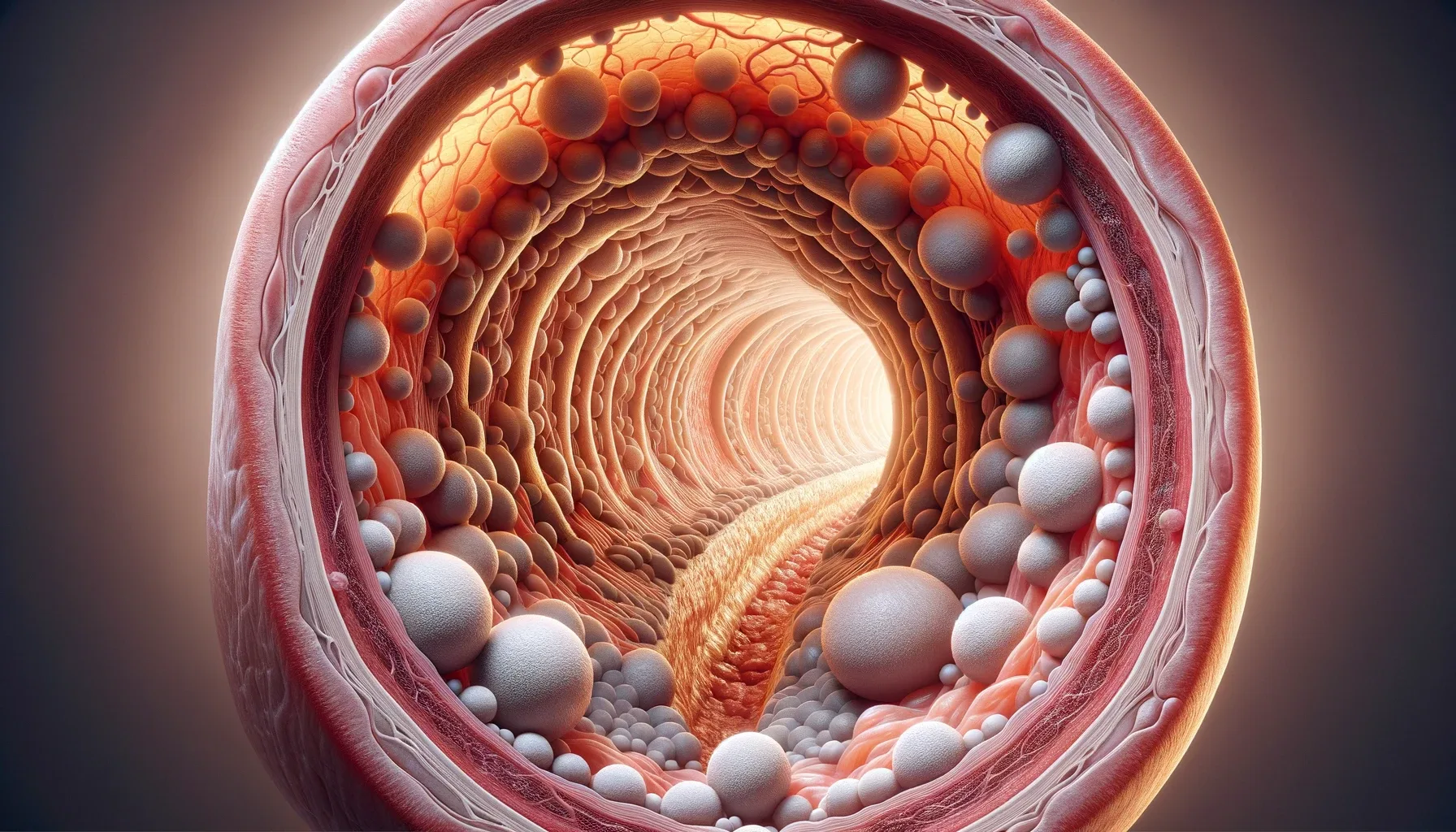How Flaxseed Lowers Cholesterol and Enhances Your Health
Managing cholesterol is crucial for maintaining good health, and flaxseed lowers cholesterol naturally. It’s a powerful ally for heart health. For many, the fight against high cholesterol can seem challenging. It often involves medications or significant dietary changes. However, adding flaxseed to your diet offers a simple, yet effective way to manage your cholesterol levels. This approach is well-supported by scientific research.
Flaxseed is not just good for cholesterol; it’s also full of nutrients that offer many health benefits. These include improving digestive health and reducing the risk of heart disease. This tiny seed is a nutritional powerhouse. In this post, we will explore how flaxseed works to lower cholesterol, examine the scientific research supporting its benefits, and offer practical tips on incorporating it into your daily diet to improve your health.
Understanding Cholesterol and Its Effects on Health
Cholesterol, a waxy substance found in your blood, plays a vital role in building healthy cells. However, having high levels of the wrong type of cholesterol, known as LDL (low-density lipoprotein), can lead to health issues. It increases the risk of heart disease by contributing to the buildup of fatty deposits in arteries. This buildup can reduce or block blood flow, leading to serious cardiovascular problems.
On the other hand, HDL (high-density lipoprotein), often referred to as ‘good’ cholesterol, helps remove other forms of cholesterol from your bloodstream. Maintaining a healthy balance between LDL and HDL is essential for cardiovascular health. This balance helps prevent arterial blockages and reduces the risk of heart attacks and strokes.
Why Managing LDL Cholesterol Is Crucial
High LDL cholesterol is a major risk factor for coronary artery disease. It can silently damage your arteries over many years. Without management, elevated LDL levels can lead to atherosclerosis. This condition narrows the arteries and increases the chance of blockages. The good news is that diet plays a significant role in controlling cholesterol levels. Introducing flaxseed into your diet is one effective way to lower LDL cholesterol and promote a healthier heart.
The Science Behind How Flaxseed Lowers Cholesterol
Flaxseed is not just another dietary fad; it’s backed by science for its health benefits, particularly in cholesterol management. Here’s how its key components work together to help lower cholesterol:
Rich in Alpha-Linolenic Acid
Alpha-linolenic acid (ALA), a plant-based omega-3 fatty acid found abundantly in flaxseed, plays a critical role in maintaining heart health. Studies show that ALA can help reduce inflammation and prevent cholesterol from being deposited in the blood vessels. This helps keep arteries flexible and promotes better blood flow, thus reducing the risk of heart disease.
The Role of Lignans and Fibers
Flaxseed is also rich in lignans, which have antioxidant properties that help reduce blood lipid levels. Lignans interfere with the production of certain enzymes involved in cholesterol metabolism, which helps lower blood levels of LDL cholesterol. Additionally, the soluble fiber in flaxseed traps fat and cholesterol in the digestive system. This trapping mechanism prevents the absorption of cholesterol, leading it to be excreted from the body rather than entering the bloodstream.
Each of these components—ALA, lignans, and fibers—plays a unique role, but together they form a potent combination that can significantly lower LDL cholesterol levels. This synergistic effect makes flaxseed a versatile tool in the fight against high cholesterol.

Comprehensive Research Supporting Flaxseed’s Benefits
Flaxseed has been the subject of various scientific studies that highlight its role in lowering cholesterol and enhancing heart health. Here’s a summary of key findings from notable research:
Flaxseed and LDL Cholesterol
A systematic review published in Nutrition, Metabolism and Cardiovascular Diseases reviewed the effects of different foods on LDL cholesterol levels. This review specifically identified flaxseed as an effective dietary component for reducing LDL cholesterol. The findings underscored that regular consumption of flaxseed leads to significant reductions in LDL cholesterol, emphasizing its role in a heart-healthy diet. The review also highlighted that flaxseed integrates well with other dietary strategies, providing a comprehensive approach to cardiovascular risk reduction.
The findings underscored that regular consumption of flaxseed leads to significant reductions in LDL cholesterol, emphasizing its role in a heart-healthy diet.
Cardiovascular Health and Flaxseed
Research published in the International Journal of Angiology discusses flaxseed’s broader impact on cardiovascular health. It states that flaxseed and its bioactive components significantly reduce lipid profiles, which are critical in preventing and managing cardiovascular diseases. The study suggests that flaxseed’s multifunctional nature makes it a valuable food ingredient for improving cardiovascular health, potentially offering therapeutic benefits beyond just cholesterol reduction.
Flaxseed in Clinical Contexts
Further supporting flaxseed’s health benefits, clinical trials have demonstrated that flaxseed can help manage and reduce the risk of cardiovascular diseases by impacting cholesterol levels. These studies provide a strong basis for recommending flaxseed as part of a diet aimed at improving heart health and preventing cardiovascular conditions.
Flaxseed is rich in Alpha-linolenic acid (ALA), lignans and both soluble and insoluble fiber; all of which have proven to help lower cholesterol.
Flaxseed in Dietary Patterns
Incorporating flaxseed into your daily diet is a simple and effective way to manage cholesterol levels. Here’s how flaxseed lowers cholesterol through various dietary approaches:
Plant-Based Omega-3s and Heart Health
A study from Penn State highlighted the benefits of plant-based omega-3 fatty acids, like those found in flaxseed, in supporting cardiovascular health. These omega-3s are not just heart-healthy; they also contribute to lowering the risk of other cardiovascular diseases. The study pointed out that these nutrients help lower systemic blood pressure and improve cholesterol levels, enhancing heart function and reducing disease risk.

The Portfolio Diet and Flaxseed
The Portfolio Diet is a plant-based dietary pattern that includes flaxseed among other heart-healthy foods. It has been linked to numerous health benefits, including lowering the risk of Type 2 diabetes. Research from the Women’s Health Initiative Prospective Cohort Study found that adhering to the Portfolio Diet contributes significantly to glucose management and diabetes prevention. Notably, the high fiber content in flaxseed as part of this diet is associated with reductions in HbA1c levels, suggesting potential benefits for diabetes risk modulation and how effectively flaxseed lowers cholesterol.
Incorporating Flaxseed into Your Diet to Lower Cholesterol
Adding flaxseed to your diet doesn’t have to be complicated. Here are a few easy suggestions:
- Sprinkle flaxseed over your breakfast cereal or yogurt for a nutritious start to your day.
- Mix flaxseed into your smoothies or baking recipes, such as muffins and bread, to boost fiber and omega-3 content without altering the taste significantly.
- Use flaxseed oil as a salad dressing or in other dishes where you might use other types of oil. It’s a simple swap that increases your intake of beneficial omega-3s.
By making these small changes, you can significantly impact your health by naturally managing cholesterol levels and improving overall cardiovascular health with flaxseed.

Final Thoughts
We’ve explored how flaxseed lowers cholesterol and the scientific evidence that supports its powerful role in enhancing cardiovascular health. With its rich content of alpha-linolenic acid, lignans, and fibers, flaxseed offers a multifaceted approach to managing cholesterol levels and improving overall heart health.
Adopting flaxseed into your diet is more than just a dietary change—it’s a step towards a healthier life. Whether you sprinkle it on your morning oatmeal, blend it into your favorite smoothie, or incorporate it into your baking, the versatility of flaxseed makes it easy to enjoy its health benefits every day.
Remember, managing cholesterol naturally isn’t just about one single food; it’s about creating a balanced diet that supports heart health. However, the addition of flaxseed can be a simple, effective, and natural boost to your cardiovascular health strategy.
Take the first step today—try adding flaxseed to your diet and discover the positive changes it can bring to your health. Let’s make heart health a priority, one seed at a time!
References
- Dietary Flaxseed Independently Lowers Circulating Cholesterol… The Journal of Nutrition
- The effects of foods on LDL cholesterol levels: A systematic review… Nutrition, Metabolism and Cardiovascular Diseases
- Flaxseed and Its Components in Treatment of Hyperlipidemia and Cardiovascular Disease. International Journal of Angiology
- The Portfolio Diet and Incident Type 2 Diabetes. Diabetes Care
- Plant-based omega-3s may boost heart health, reduce risk of heart disease. Penn State
- Flaxseed dietary fibers lower cholesterol…Nutrition and Metabolism
A Note to Commercial Bakeries

- You can easily produce delicious flax-based keto-friendly products which are clean label, high protein, high fiber and plant-based!
- Recipes provided on all bulk orders, with ongoing customer support
- Worldwide shipping
- To order, visit our wholesale distributor, SnowCap Enterprises, and search: Powerflax Gold Low Carb Mix (SNC80).
- Get in touch with us!

